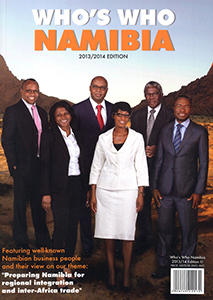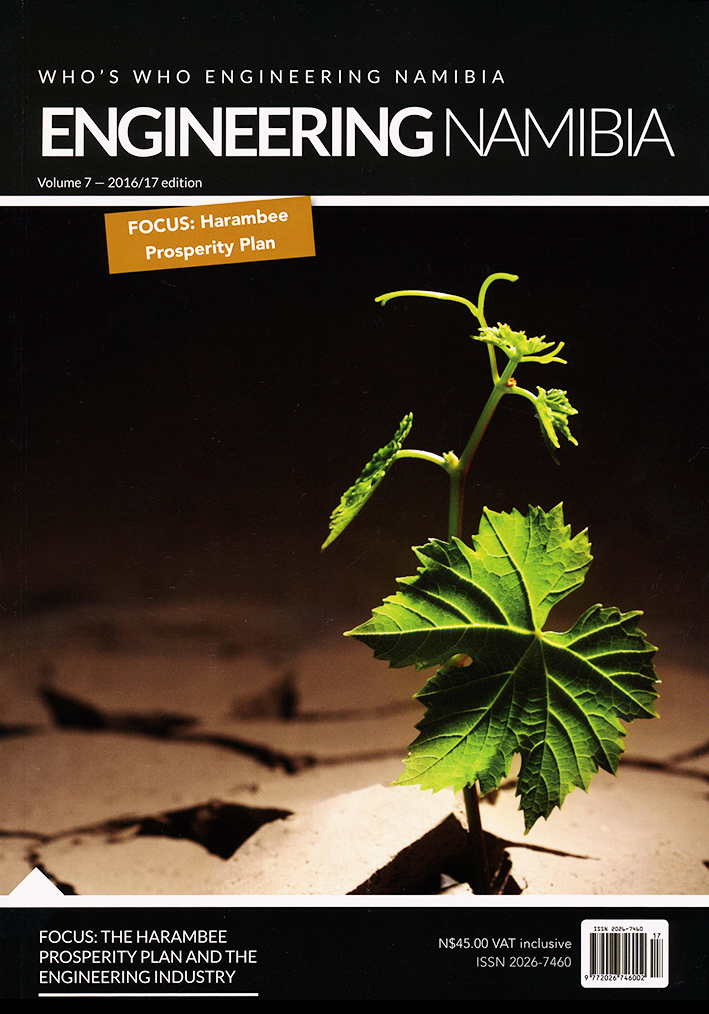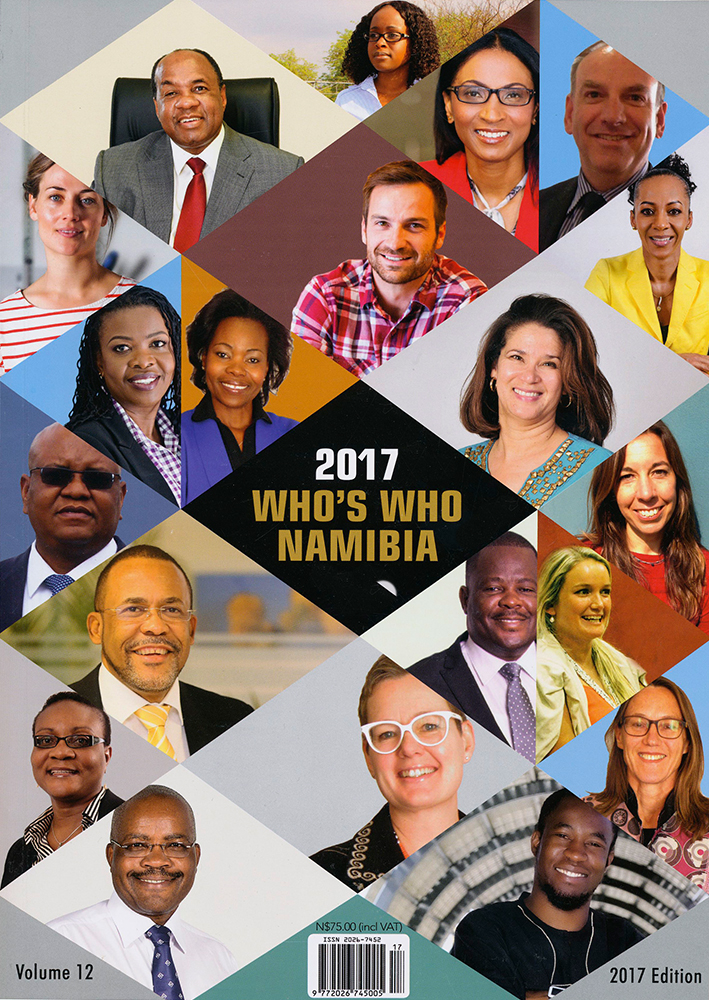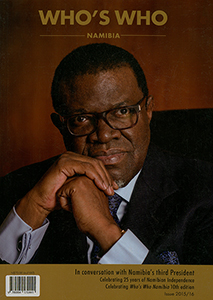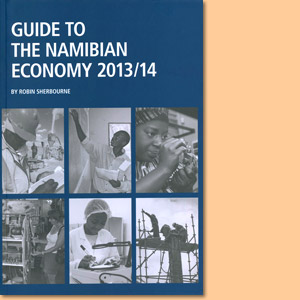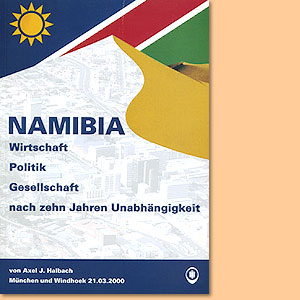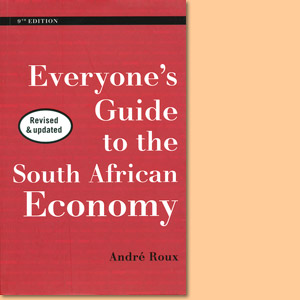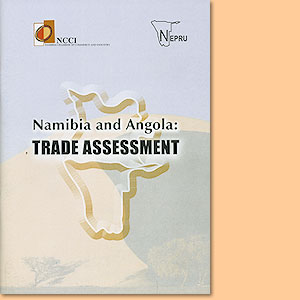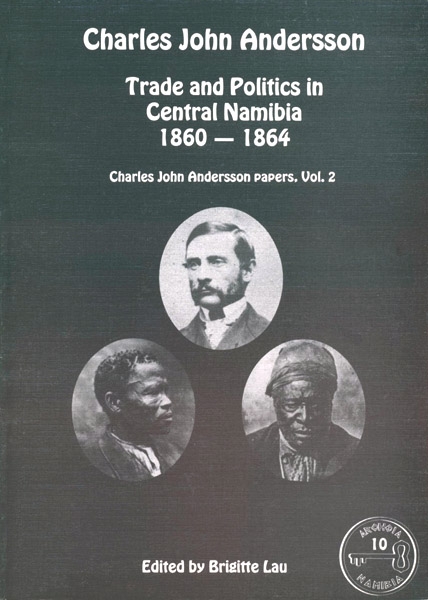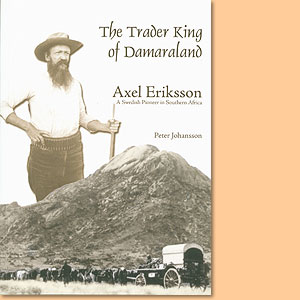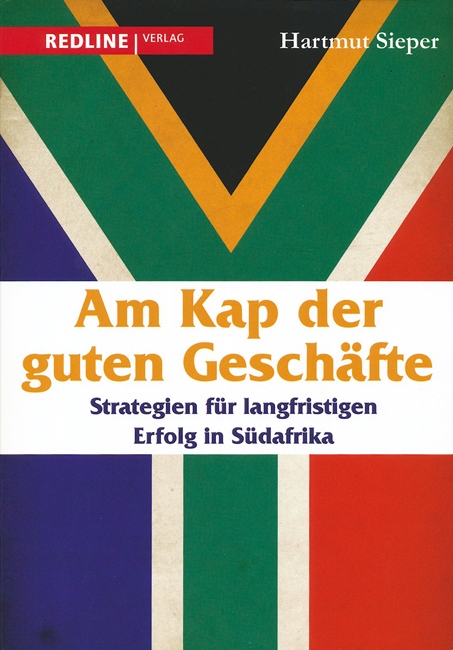Who's Who Namibia 2013/2014, by Thea Visser
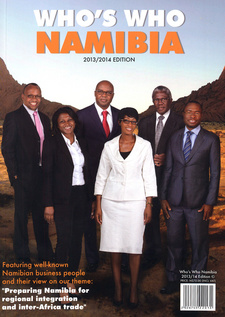
Who's Who Namibia 2013/2014, by Thea Visser. Virtual Marketing; Windhoek, Namibia 2013; ISSN 2026-7452
Thea Visser is executive editor of the annual publication Who's Who Namibia that introduces to Namibian entrepeneurs, senior managers, executive officers and leaders in business, public-service and politics.
Personal Profiles: Martin Inkumbi
Chief Executive Officer: Development Bank of Namibia. Confident and competent, taking DBN to the next level.
On acceptance of his appointment to the position of Chief Executive Officer of the Development Bank of Namibia (DBN), Martin Inkumbi hit the ground running. With seven years' experience in senior management roles, he is confident that he is well placed to drive DBN to yet more successes. For him, finance is not just about figures; it's also about people and finding and using opportunities to develop Namibia. As one of the many young, bright Namibians who completed their secondary education at private schools before Independence, he attended the German Private School (Deutsche Höhere Private Schule) in Windhoek, Inkumbi always felt drawn to leadership positions. He shares laughingly: "As a young boy, I always thought I want to become a reverend, because in most villages, the church is the centre of everything. The most important person in the village is, of course, the reverend or pastor of the church, so I decided that's what I want to become!" Born in Elim village near Oshakati in the Omusafi Region and speaking German fluently, Inkumbi regards himself lucky to be where he is today. "My parents couldn't afford to send me to private schools or university. If it hadn't been for the fact that DHPS enrolled young black Namibians pre-Independence, I would probably not be here. I grabbed every opportunity that came my way with both hands and worked hard to be where I am today." As the strategic lynchpin between the Board of the Bank and its stakeholders on the one hand, and the organisation which he heads on the other, he is responsible for the execution of the Bank's strategy in the years to come. Over the past two years, the Bank has implemented strategic changes in order to aligning its operational activities, focus and its structure in order to better meet its mandate to foster economic development through enterprise finance, in line with the national priority to promote industrialisation in Namibia. Inkumbi was instrumental in planning and executing the transformation. As an active participant in the process, he notes that DBN is now strategically placed to play a key role as an economic catalyst of note, in Namibia and beyond. Therefore, régionalisation and the allied benefits and opportunities that it offers Namibia, are high on his agenda. "Any entrepreneur or investor will always look at the size of the market and the purchasing power to determine if it will be worth investing in a business or in a country. Namibian industrialisation is challenged by our small market and limited purchasing power. "But if regional integration comes to play and opens up bigger markets, then with Namibia's strategic location and the other advantages that we can offer, it will make all the difference. We have political stability, and fairly good infrastructure in terms of our roads, transport and telecommunications. We also have access to a deep port. Trade with SADC and other African countries presents huge opportunities for Namibian entrepreneurs and foreign investors. We need to harness those opportunities. As a continent, we have not promoted African trade as much as we should have." Due to the history of many African countries where colonial powers established trade links with the "mother land" rather than encouraging trade with their immediate neighbours, the rich tradition of trade among African countries died, he says. "African countries liberated themselves from colonial administrative rule, but did not re-establish those lost trade routes. We continued to regard Europe as our main trading partner, even though many of our manufactured goods could find a much more accessible market, with much less restrictions, just across our borders." (...)
This is an extract from the publication: Who's Who Namibia 2013/2014, by Thea Visser.
Title: Who's Who Namibia
Series: Volume 9; 2013/2014 edition
Executive editor: Thea Visser
Publisher: Virtual Marketing
Windhoek, Namibia 2013
ISSN 2026-7452
Softcover, 21x30 cm, 336 pages, throughout colour photos
Visser, Thea im Namibiana-Buchangebot
Who's Who Namibia 2013/2014
Who's Who Namibia is the leading guide to everyone who's anyone in Namibia. This is volume 9, the 2013/2014 edition.
Who's Who Engineering Namibia 2016/2017 (Volume 7)
Who's Who Engineering Namibia 2016/2017 (Volume 7) focusses on the Harambee Prosperity Plan and Namibias Engineering Industry.
Who's Who Namibia 2017 (Volume 12)
Who's Who Namibia is Namibia's premier source of information and references. This is Volume 12, 2017.
Who's Who Career Guide for Future Leaders (in Namibia)
Who's Who Career Guide for future leaders in Namibia offers a reasonable concept for making first successful career decisions right from the start.
Who's who Namibia 2015/2016 (Volume 10)
Who's Who Namibia is the leading guide to everyone who's anyone in Namibia. (Volume 10, 2015/2016)
Weitere Buchempfehlungen
Guide to the Namibian Economy 2013/2014
Guide to the Namibian Economy 2013/2014 serves as an invaluable source of information and insights.
Namibia. Wirtschaft, Politik, Gesellschaft
Wirtschaftliche Veränderungen zehn Jahre nach der Unabhängigkeit Namibias
Everyone’s Guide to the South African Economy. 9th edition
The 9th edition of Everyone’s Guide to the South African Economy clearly explains the economic forces that subtly dictate the day-to-day existence of South Africans.
Trade Assessment: Namibia and Angola
Explanation and prediction about Namibia current and future trade patterns
Charles John Anderson: Trade and Politics in Central Namibia 1860-1864
A key record in the documentation of trade and politics in Central Namibia 1860-1864 and the life of Charles John Anderson.
Am Kap der guten Geschäfte: Strategien für langfristigen Erfolg in Südafrika
Am Kap der guten Geschäfte ist eine unerlässliche Lektüre für Unternehmer und Berufstätige, die in oder mit Südafrika Strategien für langfristigen Erfolg entwickeln wollen.

